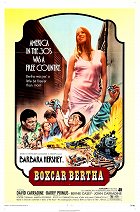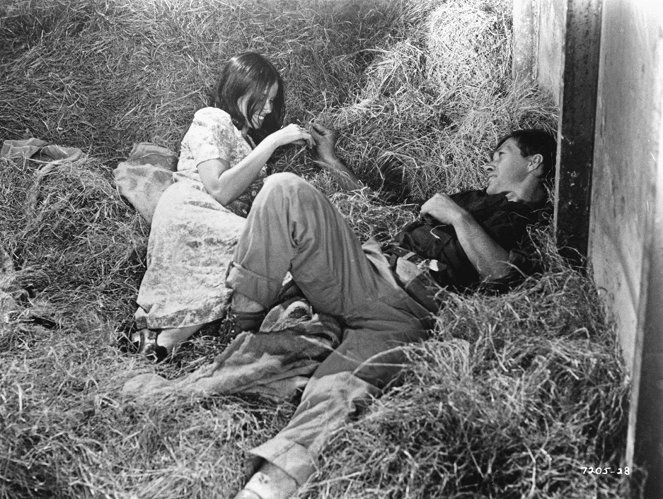Realização:
Martin ScorseseCâmara:
John M. StephensElenco:
Barbara Hershey, David Carradine, Barry Primus, Bernie Casey, John Carradine, Victor Argo, Martin Scorsese, Franklin D. Roosevelt, Harry Northup (mais)Streaming (2)
Sinopses(1)
Roubando aos ricos para dar aos pobres, Bertha e Bill rapidamente se transformam nos mais conhecidos assaltantes de comboios do Sul. Mas à medida que os seus crimes aumentam, as autoridades apertam o cerco e os dois descobrem - tarde demais - que a sua viagem ao mundo do crime os conduzirá, num caminho sem retorno, a um destino mortal! (MGM Portugal)
(mais)Críticas (2)
If I first watched the film "Bertha from the Cattle Yard" without knowing who directed it, I would have never guessed that it was actually Martin Scorsese, whom I have recently been trying to watch and learn a little more about how films are made from his movies. I think that his works are a testament to how to work with film, especially from a technical point of view. Of course, the content is also important here, but when you watch how a creator started, you notice more about the tools they used and what it meant in the film. It seems that Scorsese was searching a lot in the beginning of his career. More information can be found at: http://www.filmovy-denik.cz/2013/03/bertha-z-dobytcaku-1972-55.html
()
“Nice work, but don’t fucking ever do something like this again“, John Cassavetes advised Scorsese after seeing the latter’s B-movie answer to Bonnie and Clyde. The motivation to make this exploitation road movie that absurdly combines leftist ideology with Christian symbolism was allegedly the opportunity to preserve on film the breasts of Barbara Hershey, who essentially plays a prostitute (and to whom Scorsese "apologised" for this exclusively physical role by casting her as Mary Magdalene in The Last Temptation of Christ, based on the novel of the same name, which Hershey first introduced to him). The film deviates from the average with several visually imaginative scenes and a double-edged use of violence, which, thanks to the actors' expressions and the attention paid to the victims, is either brutal (at the hands of the fascist authorities) or just (at the hands of trade unionists). Given the commission and the conditions of filming, this is naturally not a masterpiece, but it shouldn’t be overlooked when undertaking a more thorough analysis of the motifs in Scorsese's filmography. 55%
()


Publicidade